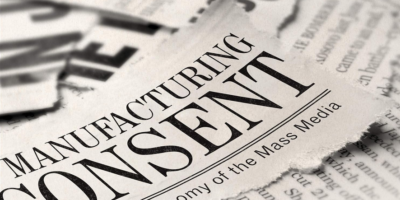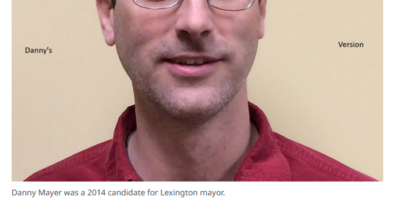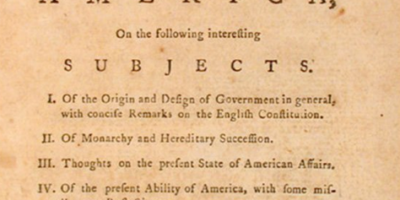Will pay for public education
By Beth Connors-Manke
On April 5, 2012, The Herald-Leader ran an opinion piece by Whitney Tilson, a hedge fund manager and a member of Patriotic Millionaires for Fiscal Strength. Following Warren Buffet’s lead, Tilson came out of the closet as a person who cares about more things than just his own bank account.
Tilson began his article, which originally ran in the Washington Post, with a statement that surely caused angina, if not outright cardiac arrest, in the R. Paul family:
“I am part of the 1 percent of the 1 percent. By that I mean that I am fortunate to be a wealthy American and I say, ‘It’s okay to raise my taxes.’”
Gasp, sputter.
Inspired by rich people who display that philanthropic spirit also known as paying equitable taxes, I’ll offer my own public plea:
“I am part of the 99 percent. I am fortunate to have had access to a good American education and I say, ‘It’s okay to raise my taxes to support public education.’”
Public and private privilege
I am not a product of public education, though. My parents sacrificed and scrapped to send me to Catholic schools through high school; after that, I earned a scholarship to a small private liberal arts college. I have never questioned the value of my education, even during those rough post-college years when finding a decent job was hard (and this was during a fairly strong economy). My education has shaped my life, not just my “career.”
Let me give an example: in college a dynamic English professor showed me how a Toni Morrison novel could shape my response to poverty and otherness. Dr. Barbour had no agenda per se, except to teach novels that made us consider the world more deeply. Lest you dismiss social ethics as paltry and unnecessary in “the real world,” let me tell you those moments, discussing that novel, inform my street interactions with the homeless downtown; they shape how I give money in my community; they shape how I vote.
Or here’s another example: My senior year of high school, I took Calculus, which is designed to break your soul. After a 69 percent on my first Calc test, which was a big failure for me, Mrs. Alhand taught me how to stick with difficulty without being flustered. I can’t tell you how many times I’ve need that determination in “the real world.”
I wouldn’t say that, just because I went to private schools, I was “privileged.” Many of my siblings attended public schools and have done very well in their lives—in part because they had great public schools. In other words, private schools are only a place of “privilege” when their public school equivalents are left in shambles by lackluster public investment or downright hostility to public education by political ideologues. (I’m sure I don’t have to name names here—just pay attention to the news.)
Public becomes private
In my decade as a teacher, I have only worked at public universities, those big scary places that would have overwhelmed me as an 18 year old. From this side of time and experience, I see public universities and community colleges as rich and dynamic resources that have the power, because they are public, to serve our community in ways different from small private institutions. Flagship state universities can stretch their arms across their state, bringing knowledge of science, agriculture, history, and literature to people; they can preserve forests as learning labs; community colleges can teach entrepreneurship and business ethics in places dominated by Wal-mart.
There are multiple layers of what it means to qualify as a public educational institution, and right now those layers are being pried apart. We’re seeing “public” divided into a least two parts: governmental control and governmental financial support. To paint with broad strokes, control seems to be increasing as financial support decreases. Being “public” apparently means being controlled by legislatures and governmental agencies rather than functioning as a common good substantially supported by public funds.
The nationwide increases in tuition, along with the governmental disinvestment in public education, are effectively making public higher education a private enterprise. The money has begun to come less from our collective commitment to education, than from families’ pockets and from private industries that partner with colleges. This shift will, in practice, create some pretty solid stratifications in socio-economic class. Eventually, enough students and their families will bail out. They’ll stop coming to school and racking up the debt. In the worst-case scenario, only those whose parents are affluent enough to front the money will have access to higher education. There will be the rich kids and then a few scholarship kids. See where this is going?
I’ll openly make the argument here that I’ve been making in private conversations for years: tax me—and make education about education, not politics, not sports, not industry. I care that the kids in my northside neighborhood have good K-12 schools and get to go to college. I care that kids in Eastern Kentucky get an education. I care that my niece won’t be shackled by debt so she can choose a vocation rather than just a career (and that her parents won’t have to bleed dry their retirement funds in order to put her through school). I care that smart whippersnapper twenty-somethings can start their own businesses or non-profits because they aren’t awash in loans.
Sure, I learned this care in an English class in a private school, but it’s a public value.




Steven Mangine
A couple generations ago, the “public” in public school, public park, or public swimming pool was a mark of pride. A public institution or edifice was created by and for a community in a deliberate effort to build a materially secure, culturally rich, and generally decent common life. Now “public” in public school means “second rate,” “the best you can do if you can’t afford ‘private,'” “the leavings.”
Public institutions support public virtue, and their breakdown leads to…well, just take a look around. It is only July, but we are already hearing the tried-and-true trump card of the political challenger: “Are you better off now than you were four years ago?” I appreciate this kind inquiry after the health of my bank account, but am more concerned about the health of my neighborhood, city, country, and on up. And, like Beth, I have my education to thank for this perspective on the world.
It was nice to hear the shout out for two teachers whose good work is passed on in Dr. Beth’s classroom. Thanks, Dr. Barbour and Ms. Alhand.